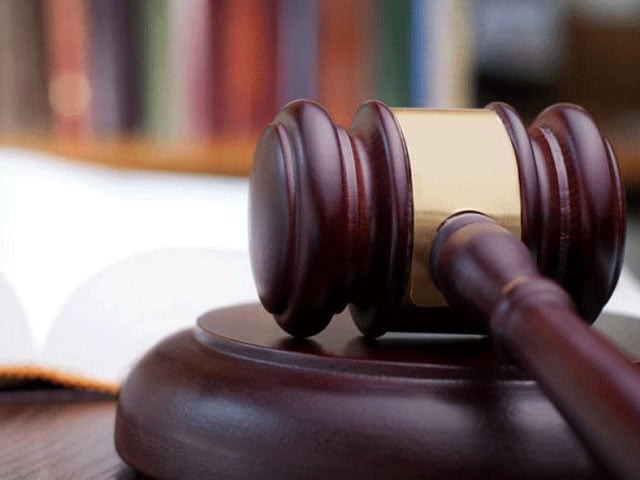Govt mulls federal constitutional court
Executive gets its way in courts post-26th amendment

Since the passage of the 26th Constitutional Amendment in October last year, the PML-N led federal government has remained largely successful in getting its way in courts. The most significant event is the award of convictions to 204 individuals — belonging to the PTI — in May 9 rioting cases.
Chief Justice of Pakistan Yahya Afridi has played a key role in expeditious trials in May 9 cases. In April, a bench led by him gave four months' deadline to anti-terrorism courts (ATCs) to complete the trials.
Similarly, the Supreme Court's Constitutional Bench, which was formed by virtue of the 26th Constitutional Amendment, has also endorsed the trials of 103 May 9 rioters by military courts.
Majority of convicts including PTI founder Imran Khan's nephew are behind the bar, waiting for passage of a proposed legislation for getting the right of appeal against their convictions by military courts.
Despite the completion of a 45-day deadline, the government has not taken any step to give the right of appeal against military courts' decisions.
The constitutional bench is also not sitting due to summer vacations. Three detailed judgements in crucial cases — related reserved seats, transfer of judges to the Islamabad High Court (IHC) and military courts — are awaited.
On the other hand, the government is waiting for an appropriate time to bring the 27th Constitutional Amendment. A senior government functionary admitted that the creation of a federal constitutional court is under serious consideration.
Judiciary role since May 9, 2023
The judiciary's role has been vital amid the ongoing confrontation between the security establishment and the PTI, a confrontation that started after the ouster of the PTI government in April 2022.
However, the establishment got disappointed, when a bench led by ex-chief justice of Pakistan Umar Ata Bandial took up a matter related to the arrest of PTI chief Imran Khan on May 9, 2023 and directed the law enforcement agencies to present him in the court.
Subsequently, the court gave relief to Imran which further upset the executive functionaries.
Ex-CJP Bandial was keen to hold general elections of Punjab and Khyber Pakhtunkhwa assemblies within the 90-day period but he could not do so due to various reasons.
The former PML-N led government had issued notification regarding the appointment of Justice Qazi Faez Isa as the next CJP months before the retirement of Justice Bandial. After his taking charge of the SC, Justice Isa did not disappoint the present government in any important matter.
Ex-CJP Isa did not take notice of the allegations of human rights violation as well as election rigging.
During his term, judgment declaring civilian trials in military courts as unconstitutional was suspended, the PTI was deprived of its election symbol ahead of the February 8 election, the party's female workers and leaders could not get bail and Imran was convicted in three cases during his jail trials.
Despite all these happenings, the February 8 election results were shocking for anti-PTI elements. Ex-CJP Isa was considered a "guarantor of system" which was formed after the elections. When some judges raised concerns about agencies' interference in judicial functions, Justice Isa did not back them.
Lawyers believe that Justice Isa's biggest step to facilitate the executive was the elevation of ex-Lahore High Court chief justice Malik Shahzad Ahmad Khan to the apex court.
The present government was very uncomfortable with Justice Khan on account of his bold steps to ensure fairness in litigations related to election disputes and the May 9 cases.
Ex-LHC CJ was the biggest hurdle in the manipulation of trials in the May 9 matters. Soon after his elevation to the SC, different ATCs judges were transferred to the satisfaction of the executive.
After six IHC judges wrote a letter to Justice Isa in March last year, the executive started working on a plan to control the superior judiciary.
One section of judges had made an attempt to secure the independence of judiciary by giving July 12, 2024 decision in the reserved seats case but they could not succeed.
Post 26th amendment judiciary
Instead of getting united for the independence of the institution, SC judges are visibly divided into two camps. The beneficiaries of constitutional amendment in the judiciary did not disappoint the present government in any issue.
The executive is completely comfortable with all high courts as well as the apex court. Majority of dissenting judges have been sidelined and not included in the constitutional bench. Even the judges who were not in the good books of the executive have been sidelined in the IHC.
The government's plan has also been successful in the IHC wherein they transferred three judges from other high courts. Subsequently, Justice Sardar Muhammad Sarfraz Dogar became the IHC CJ as per the government's plan.
It is being witnessed that the executive has total dominance in the process of superior courts judges' appointment after 26th Constitutional Amendment. Post 26th amendment, the PTI could not get any substantive relief in any matter. Now questions are being raised about convictions in May 9 cases.
It is learnt that two senior PTI leaders recently met CJP Yahya Afridi to express apprehensions over non adherence of Article 10-A of the Constitution during the trials. There is a strong perception that "excessive and unjustified" sentences are awarded to the majority of PTI activists and lawmakers.
Now all eyes are now on the LHC, which will hear the appeals against the convictions. Generally, convicts have to surrender to court before filing appeals against their convictions. One of PTI legal team members revealed that they are considering alternate strategies to plead the case against convictions.
Despite passage of several months, Imran Khan and his wife Bushra Bibi's petitions for the suspension of sentences in the 190 million pounds case have not been decided by the IHC. It will be interesting to see which LHC bench is assigned the task to hear appeals against convictions.
Lawyers fear that if the situation remains the same and the convictions are awarded without adherence to due process then people will lose complete trust in the judiciary and the ultimate loser will be the justice system.
The judges, who are on the driving seat in the superior judiciary, must evolve a mechanism to end the perception that post 26 amendment judiciary is working under executive influence.






















COMMENTS
Comments are moderated and generally will be posted if they are on-topic and not abusive.
For more information, please see our Comments FAQ